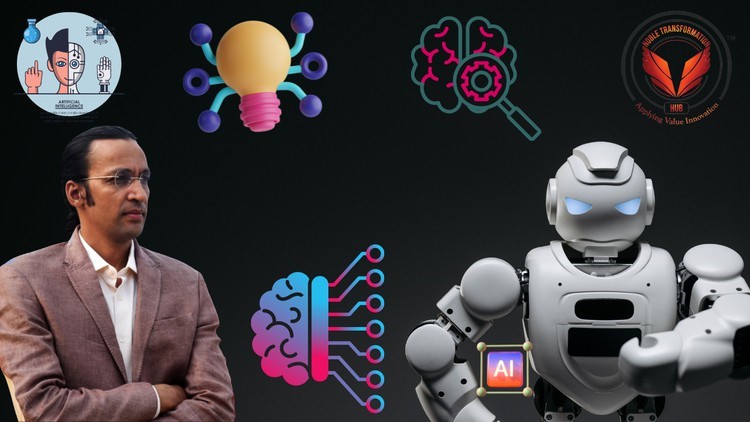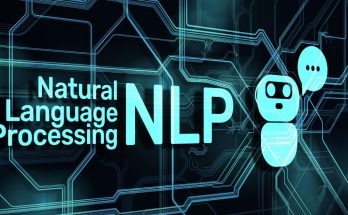Open Source Artificial Intelligence Projects: Driving Innovation and Collaboration
Artificial Intelligence (AI) has become a transformative force across industries, and the open-source community has played a pivotal role in democratizing access to AI technologies. Open source Artificial Intelligence projects empower developers, researchers, and businesses to collaborate, innovate, and build upon a shared foundation of knowledge. In this article, we will explore the landscape of open source Artificial Intelligence projects, examining their significance, notable examples, and the impact they have on the advancement of AI technologies.

The Significance of Open Source Artificial Intelligence Projects
Democratizing AI: Inclusive Access to Cutting-Edge Technologies
Open Source Artificial Intelligence Projects break down barriers to entry, making sophisticated AI technologies accessible to a broader audience. By providing source code, documentation, and collaborative platforms, these projects empower individuals and organizations to explore, understand, and contribute to the development of AI solutions. This inclusivity fosters innovation and ensures that the benefits of AI are not confined to a select few.
Community Collaboration: Harnessing Collective Intelligence
The collaborative nature of open source projects is a driving force behind their success. Communities of developers, researchers, and enthusiasts contribute their expertise, share insights, and collectively solve challenges. This collaborative ethos accelerates the pace of innovation, as diverse perspectives come together to address complex problems. The result is a rich ecosystem of tools, frameworks, and libraries that cater to a wide range of AI applications.
Notable Open Source Artificial Intelligence Projects
Tensor Flow: An Open-Source Powerhouse for Machine Learning
Developed by Google, Tensor Flow is a widely adopted open-source machine learning framework. It provides a comprehensive platform for building and deploying machine learning models across a variety of domains. Tensor Flow’s flexibility and scalability have made it a go-to choice for researchers and developers working on projects ranging from natural language processing to computer vision and reinforcement learning.
PyTorch: Empowering Dynamic Neural Networks
PyTorch, an open-source machine learning library developed by Facebook, has gained popularity for its dynamic computational graph and ease of use. It is particularly favored by researchers and practitioners in the deep learning community. PyTorch’s flexibility makes it an ideal choice for prototyping and experimenting with novel neural network architectures, facilitating faster innovation in the field.
Scikit-Learn: Simplifying Machine Learning with Python
Scikit-Learn are an open-source machine learning library for Python that focuses on simplicity and ease of use. It provides a wide array of tools for tasks such as classification, regression, clustering, and dimensionality reduction. Its user-friendly API has made it a staple in the toolkit of data scientists and machine learning practitioners for building and deploying machine learning models.
Apache Spark: Scalable Data Processing for AI Applications
Apache Spark, an open-source distributed computing system, is instrumental in handling large-scale data processing for AI applications. With support for various programming languages, Spark enables the distributed processing of data across clusters, making it a valuable tool for tasks such as data preparation, feature engineering, and model training at scale.
Open CV: Computer Vision at Your Fingertips
Open CV (Open Source Computer Vision Library) is a powerful open-source computer vision and machine learning software library. Widely used in academia and industry, Open CV provides a plethora of tools for image and video analysis, object recognition, and machine learning applications. Its versatility has contributed to advancements in areas such as facial recognition, autonomous vehicles, and robotics.
Impact on AI Development and Research
Accelerating Research: Advancements in AI Algorithms
Open Source Artificial Intelligence Projects have significantly accelerated research by providing a common ground for the development and comparison of algorithms. Researchers can build upon existing work, collaborate on improvements, and share their findings with the global community. This collaborative model fosters innovation, propelling the field forward and leading to breakthroughs in AI algorithms and methodologies.
Educational Resources: Nurturing the Next Generation of AI Talent
Open Source Artificial Intelligence Projects serve as invaluable educational resources, offering learning materials, documentation, and real-world examples. They provide a hands-on platform for students, researchers, and aspiring AI practitioners to gain practical experience. The transparency of open source projects allows users to delve into the inner workings of AI technologies, fostering a deeper understanding of complex concepts.
Challenges and Considerations
Quality Control: Ensuring Robust and Reliable Solutions
The open-source model, while promoting collaboration, can pose challenges related to quality control. Maintaining the reliability and security of code contributions becomes crucial. Robust governance models, thorough code reviews, and active community engagement are essential to ensure that Open Source Artificial Intelligence Projects deliver high-quality and trustworthy solutions.
Community Diversity: Enhancing Inclusivity
Diverse perspectives contribute to the strength of open source projects, but achieving diversity within these communities can be a challenge. Efforts must be made to create inclusive environments that welcome contributors from various backgrounds, experiences, and skill levels. This inclusivity not only enhances the richness of the projects but also reflects the diversity of potential AI applications.
Future Trends and Innovations
Edge Computing and AI: Bringing Intelligence to the Edge
The integration of AI with edge computing is a burgeoning trend that is likely to shape the future of Open Source Artificial Intelligence Projects. Edge AI involves running AI algorithms directly on edge devices, reducing the need for centralized processing. Open source projects are emerging to address the challenges of deploying and managing AI models at the edge, enabling applications in areas such as IoT, robotics, and smart devices.
Explainable AI: Enhancing Transparency and Accountability
As AI systems become more complex, the need for explain ability and interpretability grows. Open source projects focused on explainable AI are gaining traction. These projects aim to develop algorithms and tools that provide insights into how AI models arrive at specific decisions, promoting transparency, accountability, and ethical AI practices.
Conclusion
Open Source Artificial Intelligence Projects have become the backbone of innovation, democratizing access to cutting-edge technologies and fostering collaboration on a global scale. From foundational frameworks like Tensor Flow and PyTorch to specialized libraries like Open CV, these projects have propelled advancements in machine learning, deep learning, and computer vision. As the AI landscape continues to evolve, open source contributions will play a pivotal role in shaping the future of AI technologies, making them more accessible, transparent, and impactful. The collaborative spirit of the open source community ensures that the benefits of AI reach diverse industries and communities, driving progress and innovation in the quest for intelligent systems.



